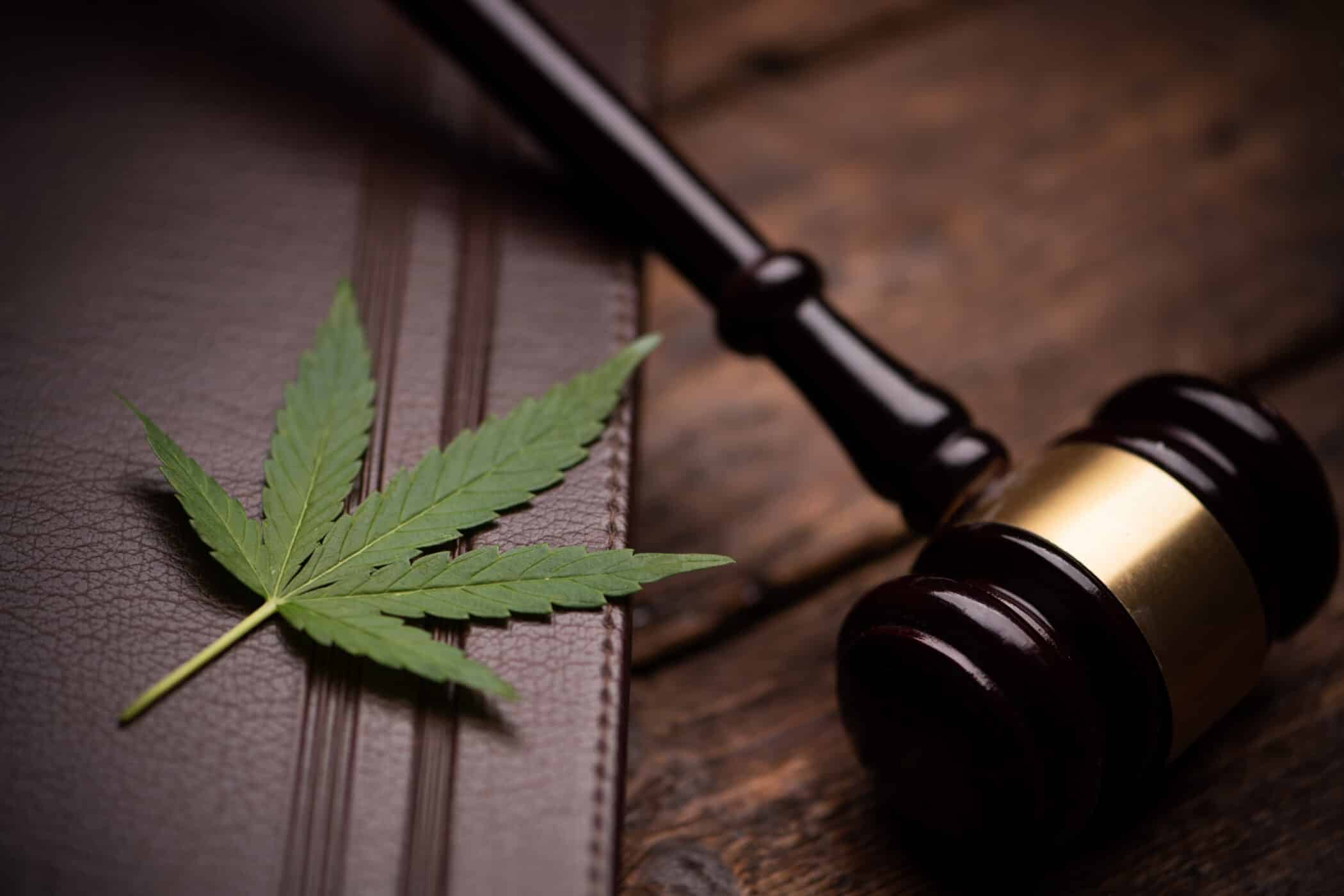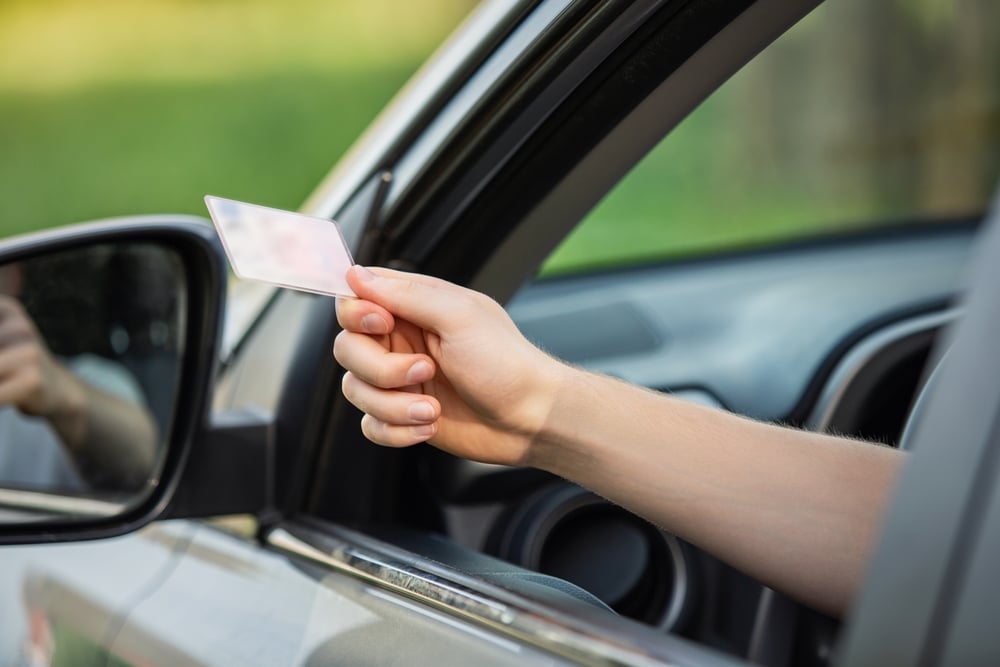If you’re pulled over in a seemingly routine traffic stop, what happens if the police officer notices that your breath smells like alcohol?
It’s common for officers to check for the scent of alcohol, and it’s possible that odor could lead to a DWI arrest.
The scent of alcohol on a driver’s breath doesn’t necessarily indicate drunk driving, but it may serve as enough probable cause for further questioning or tests. Police will use the smell of alcohol to look for more signs of intoxication that could help them build a DWI case. This includes slurred speech, bloodshot eyes, and lack of balance.
In this article, we’ll explore the facts and misconceptions about whether drivers can be charged with DWI simply because their breath smells like alcohol.
Casual Breath Checks: Understanding the Misconceptions
There is a misconception that in order to be considered drunk, a person’s breath must smell of alcohol.
It’s not uncommon for people to casually check their breath by cupping their hands together and sniffing for alcohol. The practice is based on the common misconception that a lack of a strong alcoholic odor on your breath indicates that your driving ability isn’t impaired.
Not Everyone Smells of Alcohol
While smelling of alcohol may indicate that you’ve recently had a drink or two, your breath doesn’t accurately reflect your blood alcohol content (BAC). In reality, people metabolize alcohol at varying rates. Factors such as an individual’s age, weight, height, gender, genetics, overall health, and whether they’re taking other medication can all affect how efficiently they are able to break down and eliminate alcohol from their bodies.
As a result, some people’s breath will not smell of alcohol, even when they are legally intoxicated. People metabolize alcohol differently, and your breath is not a reliable indicator of impairment. Some individuals can drink large amounts of alcohol without appearing drunk, while others may exhibit signs of impairment after just one drink.
Casual breath checks can lead you to falsely believe you aren’t drunk when, in reality, your driving ability may be impaired. Not only does this risk a traffic stop culminating in DWI charges, but it also puts you, your passengers, and other road users at risk of serious injury or even death.
Recognizing and being aware of how you metabolize alcohol can help you to make safer, more responsible decisions.
Probable Cause and Traffic Stops: The Role of Breath Odor
Law enforcement officers have the authority to pull you over as long as they have reasonable suspicion that you are committing or are about to commit a crime. A traffic stop without reasonable suspicion could be considered a violation of your civil rights and may result in any evidence gathered against you being deemed inadmissible in court.
In Texas, DWI stands for driving while intoxicated, while DUI means driving under the influence. The two terms are not interchangeable.
Reasonable suspicion for driving under the influence can include:
- Erratic driving
- Drifting in and out of lanes
- Driving too slowly
- Speeding
- Failing to stop at red lights or stop signs
If law enforcement officers make a traffic stop based on reasonable suspicion, they must establish probable cause before making an arrest for DWI. The presence of alcohol on your breath can be used as a factor to establish probable cause for further investigation, including field sobriety and breathalyzer tests.
To establish probable cause for a DWI arrest, police officers will be looking for ways to determine whether you’re intoxicated. This can refer either to the percentage of alcohol in your bloodstream or impairment of mental or physical faculties due to drugs or alcohol. In Texas, the legal BAC limit is 0.08 for drivers age 21 and up.
However, even if your breath doesn’t smell of alcohol, officers can use other factors to determine probable cause, including:
- Slurred speech
- Bloodshot eyes
- Unusual or aggressive behavior
Dealing with Law Enforcement: Know Your Rights
If you’re stopped on suspicion of drunk driving, the police officer will be searching for visible or physical signs of impairment, including the scent of alcohol, slurred speech, and bloodshot eyes.
If the officer can smell alcohol on your breath, they will typically begin by asking you questions about where you have been and how much you’ve had to drink.
You will likely be asked to step out of the car and take part in a series of field sobriety tests and a preliminary breath test to determine your blood alcohol content. The purpose of these tests is to establish probable cause for arrest and to gather evidence to use against you in court.
It’s crucial for you to be aware of your rights in case you ever find yourself in this situation. Beyond providing the police officer with basic information such as your name, address, driver’s license, and car registration, you have the right to remain silent and are not obligated to answer additional questions about where you’ve been, where you’re going, and how much you’ve had to drink.
You also have a right to refuse field sobriety tests and preliminary roadside breath tests without legal consequences. However, refusal may result in your arrest.
You also have a right to refuse a Breathalyzer test at the station, though this may result in consequences, such as suspension of your driver’s license.
If you are arrested and charged with DWI in Texas, you should call a defense attorney as soon as possible. An experienced DWI attorney with Michael & Associates will advise you on your rights, protect your interests, help you navigate the legal process, and potentially reduce any charges or penalties. In some instances, your defense lawyer may be able to get the charges against you dropped or dismissed.
Legal Representation is Crucial for Drivers If Officers Detect the Scent of Alcohol
A DWI conviction can have a devastating impact on your professional and personal life. The legal implications range from hefty fines and the suspension of your driver’s license to imprisonment. It also leaves you with a permanent criminal record.
Not only does a criminal record reduce your opportunities for employment and career development, but it can also limit your housing options, impact your financial stability, affect the rates you pay for car insurance, and alienate you from friends, family, and your community as a whole.
It’s imperative to seek legal help as soon as possible if you face DWI allegations or charges. A skilled DWI lawyer can review the evidence against you, question the arresting officer, and challenge any inaccuracies or flaws in your arrest, including the alleged presence of alcohol on your breath.
A good DWI attorney may even be able to get your DWI charges lowered or completely dismissed.
FAQs About Drivers Whose Breath Smells Like Alcohol
Is It Possible for Someone Not to Smell of Alcohol When Intoxicated?
Yes, it is possible to be legally intoxicated and not smell of alcohol (or feel drunk). An alcoholic odor on your breath (or lack thereof) does not always correlate with your blood-alcohol content levels.
Can a DWI Charge Be Based Solely on Alcohol on My Breath, Even if I Pass a Sobriety Test?
First off, field sobriety tests can be notoriously difficult to pass, even if you’re not intoxicated. Usually it’s better to not even take a field sobriety test.
It’s unlikely that DWI charges will be based solely on the presence of alcohol on your breath. Passing field sobriety tests could help your case, but officers can also arrest you based on factors such as bloodshot eyes, slurred speech, strange behavior, an admission of alcohol use, and the results of a breathalyzer test (which measures breath alcohol content). Generally, once an officer has asked you to perform field sobriety tests, they already feel they have enough information for an arrest and are only trying to further strengthen their case against you.
What Are My Rights If Pulled Over Due to the Smell of Alcohol on My Breath?
Any time you’re pulled over by a police officer, there are rights you should be aware of. You always have the right to an attorney. In addition, you have the following rights:
- You have a right to remain silent. You may politely inform the law enforcement officer that you’d like to exercise your right to remain silent. You do not have to answer questions about where you have been, where you’re going, or how much you have had to drink.
- You have a right to refuse field sobriety tests. Field sobriety tests are often subjective. Various factors, including the location of the tests and weather conditions, can affect your performance, and the results can be used against you in court.
- You have a right to refuse a breath test. In some states, such as Texas, refusing a breath test violates the “implied consent law” and may result in the suspension of your driver’s license. However, you still have the right to withdraw consent, as long as you’re aware of the potential consequences. Refusing a breath or blood test may, however, lead to a mandatory blood draw.
What Should I Do if I’m Pulled Over and Police Say My Breath Smells of Alcohol?
Remain calm, cooperative, and polite. Provide basic information such as your name and address and present your license, registration, and insurance details.
However, you do not have to answer questions about where you have been or how much you’ve had to drink — as previously mentioned, you have a right to remain silent. You also have the right to refuse roadside sobriety tests and preliminary breath tests.
Try to document the traffic stop and the arrest in as much detail as possible. Consider taking notes or using your phone to make an audio recording. Only one party is required to consent to an audio recording in Texas, so it’s legal to record audio of your own interactions with police. Specific examples of the officer’s conduct and behavior may be able to help your defense attorney build a strong case for you later.
If you’ve been arrested and charged with DWI in Texas, it’s important that you demand to speak with a defense attorney as soon as possible. The team at Michael & Associates has years of experience fighting DWI charges to get you the best possible outcome. Contact us today. The consultation is free.




